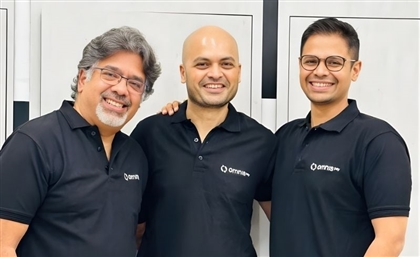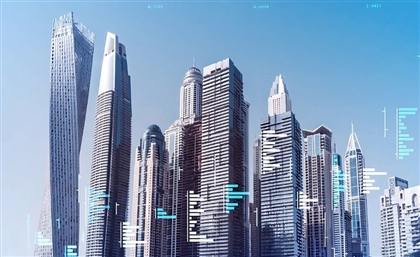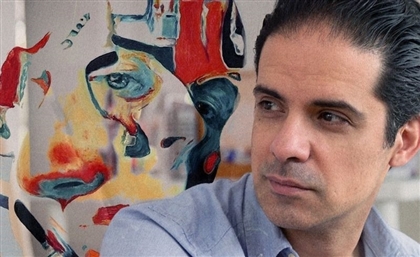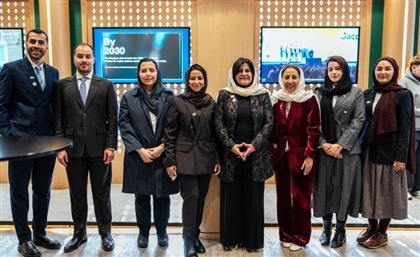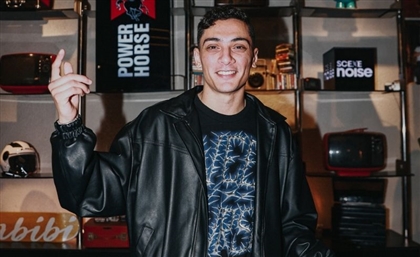Betting Big on Arab Innovation: Inside the Rise of Regional VC
With firms like BECO, MEVP, Wamda, Flat6Labs, and Shorooq leading the charge, the region is building a fully-fledged startup economy where founders can grow, scale, and exit without ever leaving home.

When a MENA startup lands a nine-figure funding round today, it no longer surprises anyone. What was once a fledgling entrepreneurial scene has evolved into a fast-maturing ecosystem - an engine of innovation powered increasingly by regional capital. Across the Arab world, venture firms are financing the next wave of tech founders - and in the process, reshaping what growth, scale, and success mean in a region once reliant on imported capital and ideas.
Just over a decade ago, the startup story in the Arab world was one of early believers and scattered angel investments. Today, it’s about structured venture funds, institutional capital, and billion-dollar exits. The shift has been as much cultural as financial; entrepreneurship has become an accepted, even celebrated, career path, while governments across the Gulf and North Africa have embedded innovation into their economic diversification agendas. State-backed funds and sovereign wealth entities across the region - driven by ambitions like Saudi Arabia’s Vision 2030 and Egypt’s digital transformation agenda - are now co-investing alongside private VCs, signalling a long-term bet on homegrown enterprise.
In that context, a handful of regional venture firms have risen to define the shape and rhythm of Arab innovation, each filling a different gap, yet together building an ecosystem that is finally self-sustaining.
Spearheading this movement is BECO Capital, the Dubai-based firm that has evolved in lockstep with the ecosystem it helped ignite. Founded in 2012, BECO was among the first to bet on the Gulf’s tech ambitions, backing Careem, Property Finder, and Kitopi long before the region’s unicorn era took shape. Its recent launch of two new funds - together worth $370 million - signals a new chapter, expanding its focus from early-stage bets to growth investments of up to US $20 million. In a market long rich in seed enthusiasm but short on scale-up funding, BECO has positioned itself as the bridge that lets founders stay regional while thinking global. That shift mirrors the ecosystem’s own growing pains. Early acceleration and seed capital are now plentiful, but sustaining momentum from Series B to pre-IPO remains a challenge. Firms like BECO and Middle East Venture Partners (MEVP) are stepping into that void, providing the continuity startups need to grow at home rather than relocate abroad.
While BECO is pushing the boundaries of growth-stage investing, MEVP, one of MENA’s most established venture funds, brings the institutional scale and discipline needed to sustain it. MEVP manages several vehicles - including a US $150 million fund launched in 2023 - deploying capital across fintech, healthtech, education, real estate, and AI. Its backing of Anghami and Fresha, a global beauty-tech platform, highlights how regional investors are now chasing international success stories rather than just local traction.
If BECO and MEVP anchor the region’s growth story, Flat6Labs represents where that story begins. Founded in Cairo before most regional entrepreneurs had even heard the word 'accelerator', Flat6Labs became the launchpad for hundreds of Arab startups. For the past 10 years - across Egypt, Saudi Arabia, Tunisia, Lebanon, Bahrain, and the UAE - it has evolved into a hybrid model of funding, mentorship, and founder training that fills the critical gap between concept and company. Its portfolio includes success stories like Instabug, YallaFelSekka, and FlexxPay - ventures that began as local experiments but grew into regional benchmarks.A recent restructuring under the F6 Group umbrella formalises that evolution by separating investment from programmatic activity: F6 Group is now the parent entity, F6 Ventures leads all VC activities (including managing investments and the existing portfolio), and Flat6Labs focuses solely on ecosystem development and accelerator programs (no longer conducting direct investment). The new model gives the network flexibility to manage dedicated funds while operating as a focused operational hub, paving the way for expansion into new markets such as Morocco and Oman. With over 300 startups backed and roughly USD 50 million invested to date, Flat6Labs has grown into one of the region’s most influential startup institutions, drawing interest from development finance and sovereign partners eager to strengthen early-stage pipelines across the Arab world.
Complementing this groundwork is Wamda Capital, a firm that has played a defining role in shaping the region’s venture ecosystem. Beyond investing, Wamda has helped build the very infrastructure that supports it - from research and ecosystem reports to programmes and events that established what venture capital means in the MENA context. Through its evergreen Wamda Seed vehicle and Wamda Capital Fund I, the firm has backed names like Tabby, Eyewa, and Hala. Its historical link to Maktoob, acquired by Yahoo in 2009, remains one of the Arab world’s earliest proof points of a successful exit. What truly distinguishes Wamda, however, is its hybrid identity: part investor, part ecosystem architect. In markets still fragmented by regulation, culture, and scale, that experience has become one of Wamda’s strongest advantages.
The ecosystem’s next chapter, however, is being written by a younger generation of investors such as Shorooq Partners. Based between Abu Dhabi and Riyadh, Shorooq embodies a new model: specialised, agile, and relentlessly founder-focused. Its portfolio spans fintech, SaaS, and digital platforms, with early bets on companies like Pure Harvest, NymCard, and TruKKer that have since become regional success stories.
The firm invests from pre-seed through Series A, often serving as the first institutional backer for emerging founders, and brings a hands-on, operator-driven approach that echoes Silicon Valley’s earliest playbooks. Through its Bedaya Fund series and follow-on vehicles, Shorooq has built one of the region’s most active early-stage portfolios, complemented by an expanding presence in Pakistan and broader South Asia. For many in the ecosystem, Shorooq’s rise reflects how rapidly MENA venture is maturing, shifting from broad - opportunistic investing to deep sector expertise. It signals a new generation of firms willing to specialise, take earlier risks, and build companies with global ambition from day one, demonstrating that regional VC has moved well past its generalist adolescence.
Taken together, these firms trace a clear maturity curve - one that mirrors the evolution of venture capital in the Arab world itself. At one end, Flat6Labs and Wamda seed the pipeline, nurturing first-time founders, validating early ideas, and building the community infrastructure that keeps new talent flowing. In the middle, Shorooq Partners accelerates high-potential startups toward product-market fit, helping them scale operations, refine business models, and attract international investors. And at the other end, BECO and MEVP provide the growth-stage capital, governance, and global connectivity once missing from the equation, enabling regional startups to expand across markets and compete internationally.
For the first time, an Arab founder can move from idea to IPO without ever leaving the region’s financial ecosystem - a milestone that signals not just capital depth, but institutional maturity. With dedicated players now covering every stage of the funding lifecycle, the region’s startup scene is evolving from a collection of individual success stories into a sustainable, self-reinforcing economy- one capable of producing serial founders, repeat investors, and long-term innovation cycles.
Fintech may still dominate the headlines, but investment is rapidly diversifying. Capital is now flowing into AI, SaaS, proptech, construction tech, and consumer platforms at a pace unthinkable just a few years ago. And while the UAE and Saudi Arabia continue to anchor the largest deals, the map is widening, with Egypt, Tunisia, Jordan, and Lebanon claiming a growing share of regional investment.
This geographic and sectoral diversification - reflected in Flat6Labs’ multi-city footprint and Wamda’s pan-regional reach - is creating a more connected and resilient ecosystem - one less reliant on a single hub, and more representative of the region’s scale and diversity.
Across MENA, venture capital has evolved from an imported framework into a homegrown force shaped by regional realities and driven by local conviction. What’s taking form is a distinctly Arab model of innovation: collaborative rather than competitive, ecosystem-first rather than exit-obsessed. The challenges that remain - thin mid-stage capital, regulatory complexity, and deep-tech infrastructure gaps - increasingly reflect the realities of a market in transition rather than signs of structural weakness.
A decade ago, the idea of an Arab startup ecosystem sounded like optimism. Today, it’s the economy. The next generation of unicorns won’t be dreamed up abroad or funded from afar- they’ll be conceived, backed, and scaled right here, powered by a network of venture firms betting on both the founders and the future of the region itself.
- Previous Article Cinematic Season Style Guide with GFF's Salma Malhas & Hayat Aljowaily
- Next Article Inside Egypt’s Seven UNESCO World Heritage Sites
Trending This Week
-
Feb 12, 2026








